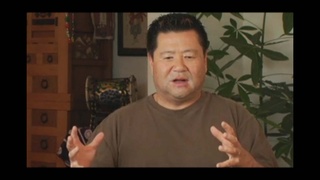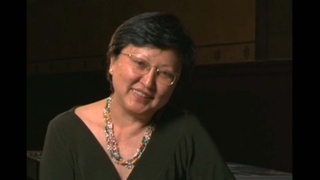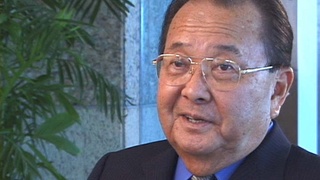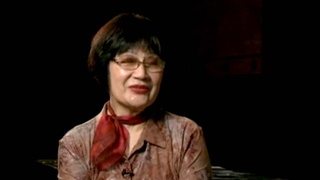Interviews
Finding out about adoption
And so my theory is if the child looks like the parents or the parents look like the child, they should never tell the child that they’re adopted because little kids don’t understand why their mother gave them away for whatever, right? But I never knew that.
And I found out when I was in my thirties. And we talked about it one time because we had a big argument. My mom and I were very strong-minded, both of us, you know, so we were often at loggerheads and something had happened that it was really a trivial thing. But we sort of went to battle over that.
Date: May 13, 2022
Location: California, US
Interviewer: Evan Kodani
Contributed by: Watase Media Arts Center, Japanese American National Museum
Explore More Videos

Thoughts on the term, "Nikkei"
(b. 1949) Musician and arts educator and adminstrator.

Post-redress future of Japanese Americans
Judge, only Japanese American to serve on CWRIC.



Need generational change in Japanese community (Spanish)
(1925-2014) La Plata Hochi, Journalist


Defining the term "Nikkei" (Portuguese)
Former Director, Museu Histórico da Imigração Japonesa no Brasil

Brazilian of Japanese descents (Portuguese)
Former Director, Museu Histórico da Imigração Japonesa no Brasil

Nikkei community concentrated in São Paulo (Portuguese)
Former Director, Museu Histórico da Imigração Japonesa no Brasil

Changing life styles of successive generations (Portuguese)
Former Director, Museu Histórico da Imigração Japonesa no Brasil


On the Importance of Role Models
(b. 1942) The first Asian American woman judge

Defining "Nikkei" through lineage and community involvement (Spanish)
Nisei Paraguayan, Researcher

The term Nikkei reflects ties to Japan (Spanish)
Nisei Paraguayan, Researcher

